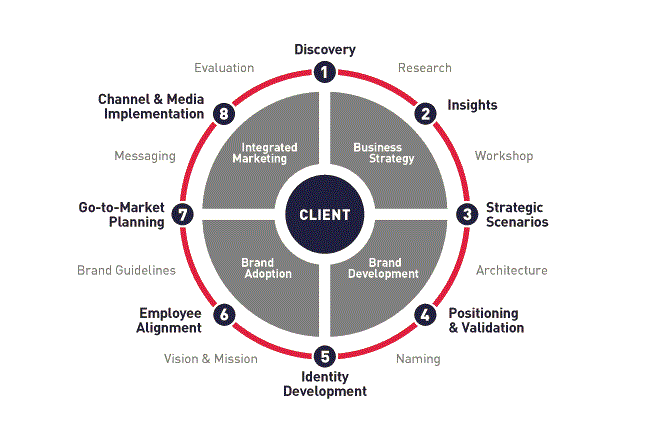[dropcap style=”2″ color=”#f50a0a” text=”A”] brand is not a product. A brand is a mentality, a character, a vision, a perspective, and a life style. A brand is a set of unique thoughts translated to a unique entity. You want to dare and build a sustainable brand; then this article will be of immense use to you.
[blockquote style=”quote” align=”” author=”Steven King”]A product is something made in a factory; a brand is something that is bought by the customer. A product can be copied by a competitor; a brand is unique. A product can be quickly outdated; a successful brand is timeless[/blockquote]
Before beginning this draining project, you have to comprehend key concepts in the world of branding. You get to have good knowledge of brand identity, brand personality, brand psychology, and brand equity. The ingredients of a sustainable brand recipe are not found in regular supermarkets; rather you find them in specialized ones. The time for cooking is fairly long and the fire flame should be of medium intensity. The procedure is a mélange of simplicity and complexity. Before everything keep in mind that your brand does not belong to you, it belongs to your customer and is more of a reflection of them than you and your business.

Identity //
A brand identity is its visible elements such as its colors, design, logotype, name, and symbol that together identify and distinguish it in the consumers’ mind. Begin by doing some soul-searching. Penetrate into your motives, convictions, and attitudes. See how can these constructively serve your future brand. Proceed by educating yourself more about what’s out there. Learn what type of identities are out there so that you can innovate something so novel and not to reiterate an already existing idea. Ask yourself what kind of impact are you seeking. Choose the appropriate design professional who can translate your brand identity in the proper colors, design, array…Choose a musical name for your brand that can’t be easily forgotten and a logotype that can stick in your customers’ memory.
- Advertisement -
Personality //
Brands that carry with them a true persona, and the beliefs and experiences similar to a personality make a brand rise to a new level. A personality helps to humanize an otherwise inanimate object or service so that a prospect’s defenses are lowered. An attractive brand personality can pre-sell the prospect before the purchase, reinforce the purchase decision, and help forge an emotional link that binds the buyer to the brand for years to come. According to marketing research studies, small-company brands usually take on the personality of the entrepreneur who owns them for it is hard for an entrepreneur to create a brand that is a 180-degree turn against what the founder is like. An entrepreneur or founder, to a large extent, is the brand because the personality and the interest of the founder are going to have a lot to do with the way that others perceive the company.A brand’s personality can offer the single most important reason why one brand will be chosen over another, particularly when there are few product or service features that are different between competing brands. The personality gives the consumer something to relate to that can be more tangible and vivid than the perceived positioning of the brand. The personality, in some ways, is much more real than the other aspects of the brand because it is the outstretched hand that touches the customer as an individual and makes the customer loyal to this brand in particular.
Psychology //
Psychology really takes a place in every corner of our lives. Studying and assessing the consumers’ psychology of preference is a major indispensable step when creating your brand. Branding has everything to do with consumer perception. It is all about how your customers perceive your brand and what kind of immediate gratification does your brand present them with. Conducting surveys can help you dig into the consumers’ mind and check if your brand will be able to be perceived positively by them. In fact, it is the power of perception that needs to be meticulously leveraged by marketers so as to sustain influencing consumer behavior.
Equity //
Years of research have shown that consumer perceptions and attitudes – measured collectively, and commonly described as consumer Brand Equity – have a direct relationship to a brand’s market position and business results. Brand equity is this intangible value-added aspect of a particular good that is otherwise not considered unique among its competitors. A sure sign of high brand equity within a certain category is the use of a brand name to define all products of a certain type. For example, referring to any paper tissue as a Kleenex® demonstrates the high brand equity of this product in the paper tissue category. To attain brand equity, you have to work on brand identity, personality, and psychology.
If you succeeded in finding all these four ingredients and following the instructions and pieces of advice specified above, then your brand will echo! Give it a try!








